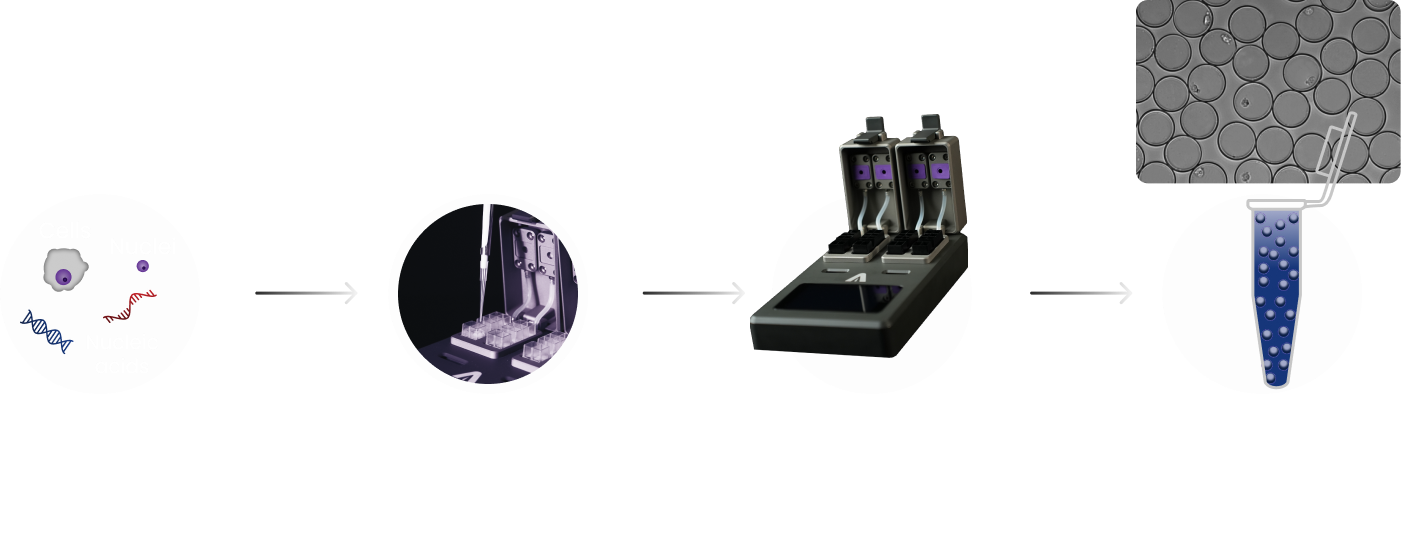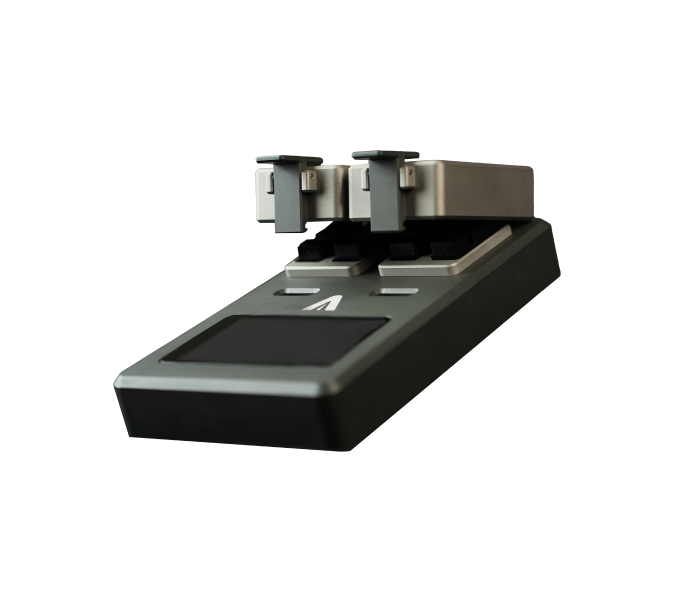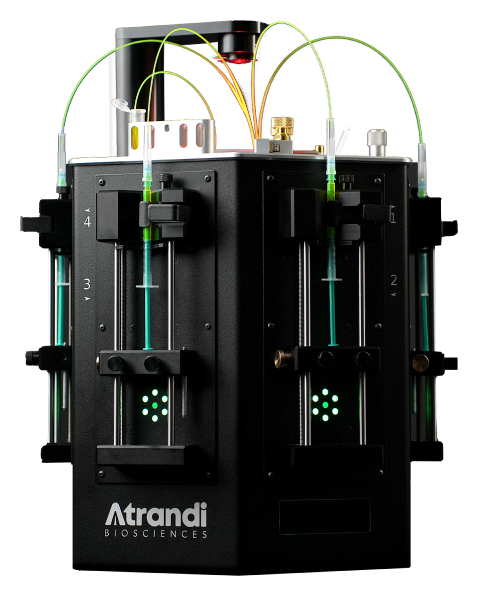
Semi-Permeable Capsules Breakthrough technology for multi‑step high‑throughput single‑cell analysis

Imagine running bulk reactions as you are used to, yet seamlessly achieving single-cell resolution. Semi-Permeable Capsules (SPCs) make this dreamlike idea into reality, enabling the investigation of various modalities of thousands-to-millions of single cells all at once.
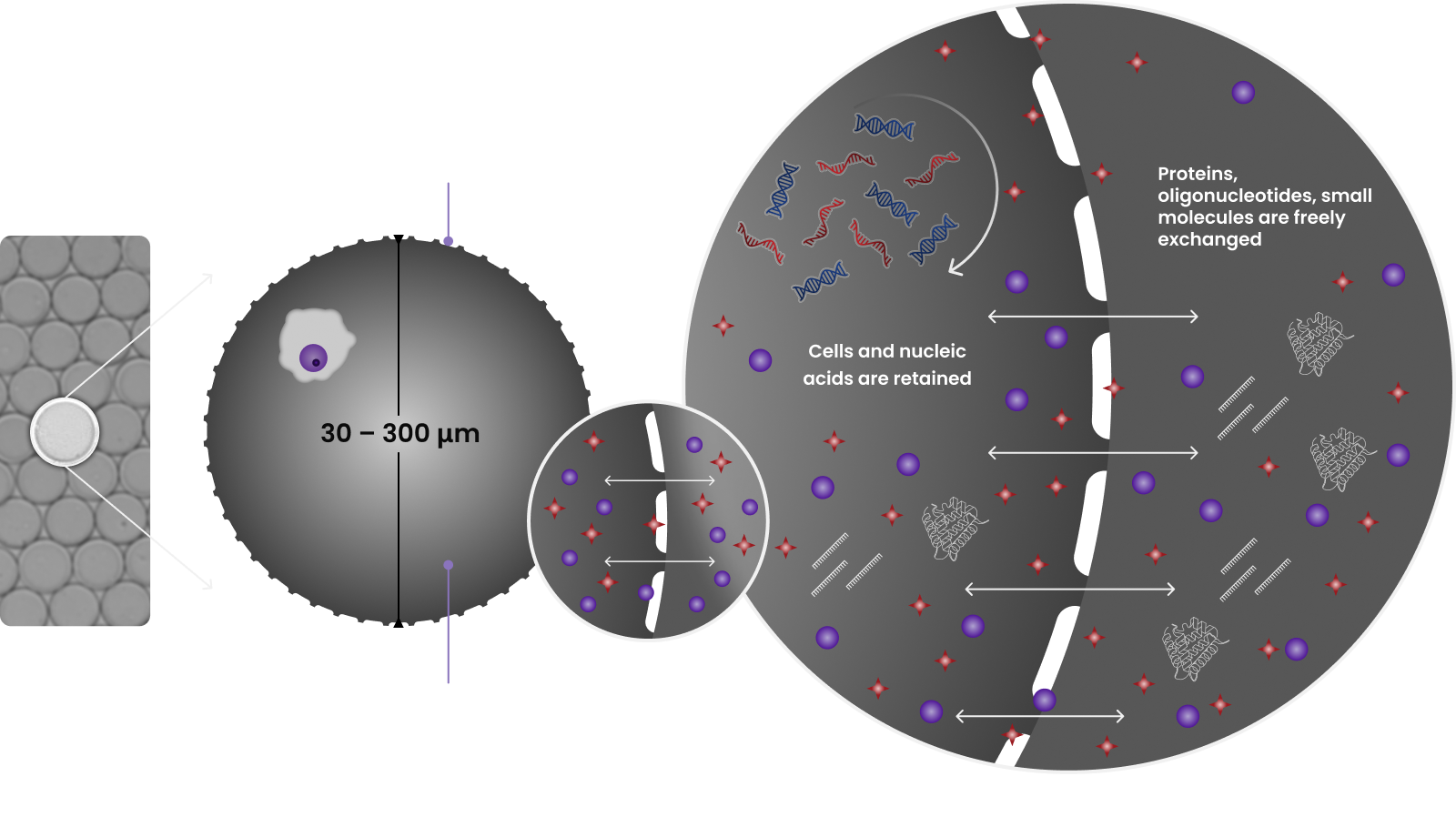
Semi-Permeable Capsules have an aqueous core and sieve-like walls that keep the cells and nucleic acids partitioned inside, while allowing the free flow of the surrounding solution, be it molecular biology reagents, buffers or media.
The distinct non-droplet nature of SPCs also enables sequential processing of incompatible reactions (e.g. harsh cell lysis and nucleic acid amplification), ensuring each reaction takes place under optimal conditions.

Features
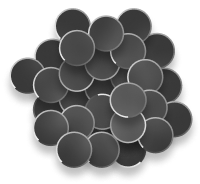
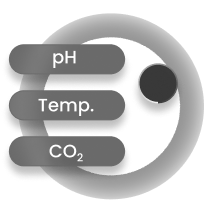




SPCs ENABLE NOVEL APPLICATIONS
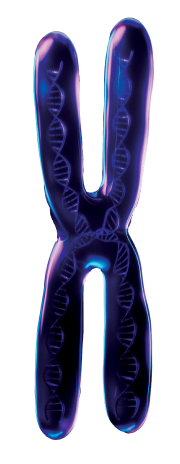

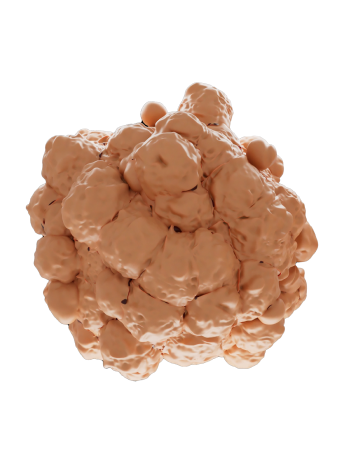

SPC GENERATION
SPCs are formed by controllably mixing two immiscible polymers in a microfluidic chip and inducing crosslinking, to create a size-selective hydrogel shell surrounding the aqueous core. This process has been streamlined for the ease of use, requiring just the press of a button.
